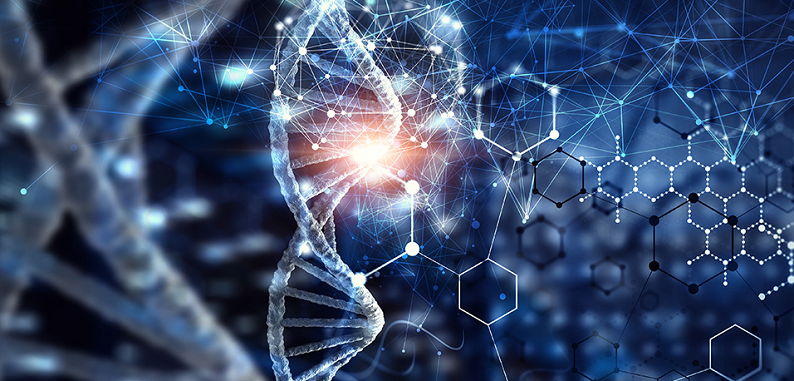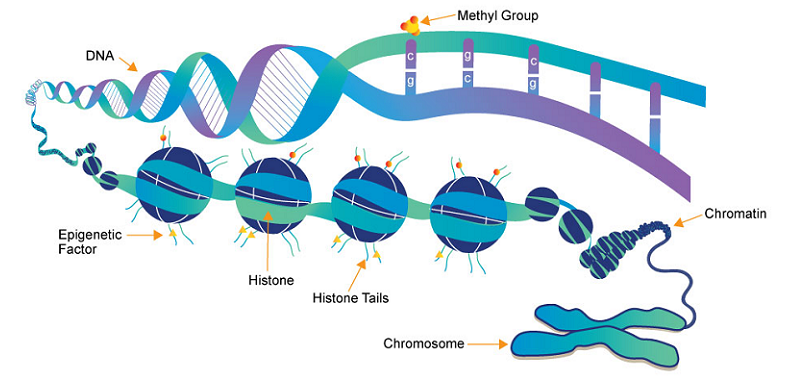
In the vast and intricate landscape of our DNA, a fascinating field of study is rapidly emerging: epigenetics. The term may sound abstract or overly scientific, but in reality, it affects every aspect of our lives. Epigenetics explores how our behaviors, environments, and particularly our diets can influence the way our genes behave. Yes, you read that right. What we eat can actually shape our genetic destiny.
Contents
Introduction to Nutrition and Epigenetics
From the moment we wake up to the time we go to bed, our choices — what we eat, how much we move, even how we deal with stress — have significant impacts on our health. But did you know these choices also interact with our genetic blueprint in profound ways? That’s where the science of epigenetics comes in. By connecting nutrition with our genes, we’re unlocking another level in understanding human health.
Definition of Key Terms: Nutrition and Epigenetics
Nutrition is a science that interprets the nutrients and other substances in food concerning maintenance, growth, reproduction, health, and disease of an organism. It involves food intake, absorption, assimilation, biosynthesis, catabolism, and excretion.
Epigenetics, on the other hand, is a branch of biology that studies changes in gene expression that do not involve alterations to the underlying DNA sequence. These changes may last through cell divisions for the remainder of the cell’s life and may also last for multiple generations. This means that while our DNA sequence remains the same, the way our body reads this sequence can change based on various factors, including our diet.
Importance of the Interplay Between Nutrition and Epigenetics
Recognizing the interplay between nutrition and epigenetics is essential for several reasons. Firstly, it can provide a better understanding of how our diet impacts our health at a genetic level, opening new possibilities for disease prevention and treatment. Secondly, it could potentially explain the mechanisms behind diet-related diseases and provide a foundation for developing new therapeutic strategies. Finally, it paves the way for the creation of personalized nutritional recommendations based on individual epigenetic profiles, heralding a new era in nutrition science [1].

Basic Understanding of Genes and Epigenetics
Embarking on this exploration of nutrition and epigenetics, it’s essential first to grasp what genes are and the fundamental principles of epigenetics. Understanding these two areas will help us delve deeper into how the food we consume can influence our genetic makeup.
Explanation of What Genes Are
Genes are like the body’s instruction manual; they control how the body grows and functions. Made up of DNA (Deoxyribonucleic acid), genes are the fundamental units of heredity and contain instructions for making proteins, the building blocks for all the structures and functions in our bodies. Each gene has a specific sequence of bases that encodes instructions on how to make proteins. While our genes largely remain the same throughout our lives, the way they are expressed can be influenced by various factors, including our diet, which is where epigenetics comes into play.
Introduction to Epigenetics
Epigenetics, a term coined by scientist Conrad Waddington in the 1940s, refers to changes in gene expression that do not involve changes to the underlying DNA sequence. These changes can be influenced by several factors, including age, environment, and lifestyle factors, like diet and exercise.
Epigenetic Marks: DNA Methylation and Histone Modification
There are two primary types of epigenetic changes – DNA methylation and histone modification. DNA methylation involves the addition of a methyl group to the DNA molecule, which can change the activity of a DNA segment without changing the sequence. This process often acts to repress gene transcription.
Histone modification, on the other hand, involves changes to proteins called histones that DNA is wound around, like thread on a spool. These changes can alter how tightly DNA is wound, which in turn can influence gene expression by making the DNA more or less accessible for transcription [2].
Role of Epigenetic Changes in Gene Expression
Epigenetic changes are crucial in the regulation of gene expression, playing a key role in cellular differentiation where cells become more specialized, such as during growth or in response to environmental stimuli. These changes can be stable and even passed on to offspring. Importantly, while some epigenetic changes can have beneficial effects, others can lead to irregular gene function and disease [3].
Examples of Epigenetic Changes in Real Life
A classic example of epigenetic changes in real life is found in honeybees. All bees start as genetically identical larvae, but their diet determines their fate. Larvae that eat royal jelly, a substance produced by worker bees, grow into queens, while those that eat bee bread (a mix of honey and pollen) become worker bees. The difference in diet leads to different epigenetic marks, which influence gene expression and result in two very different types of bees from the same genetic starting point.

Connection Between Nutrition and Epigenetics
Now that we’ve established a basic understanding of genes and epigenetics, let’s delve into how the two intersect with nutrition. The role of diet in epigenetic modifications may surprise you and reframe how you think about the food you consume daily.
Role of Diet in Epigenetic Changes
It is widely accepted that nutrition plays a vital role in maintaining good health. However, the impact of diet goes beyond immediate physiological responses and influences our gene expression, thanks to the field of nutriepigenomics.
Evidence from Research Studies
Research into nutriepigenomics has demonstrated that certain nutrients can alter epigenetic marks, and thus gene expression. Studies have revealed that dietary components can influence DNA methylation and histone modifications, key processes in gene regulation. For example, nutrients like folate, vitamin B12, and methionine can affect DNA methylation processes, while others like sulforaphane, a compound in broccoli, can influence histone modification [4].
Nutrients and Bioactive Food Components That Influence Epigenetics
Not just the essential nutrients, but a variety of bioactive food components are also found to influence epigenetic processes. These components include polyphenols found in green tea and resveratrol found in grapes, among others. These findings suggest a complex interplay between diet and our genetic makeup, offering new insights into how dietary choices can influence health and disease.
How Different Diets Can Influence Epigenetic Marks
The influence of diet on epigenetics is not just about individual nutrients or food components; it also involves dietary patterns. For instance, a high-fat diet or a diet low in fruits and vegetables can lead to changes in DNA methylation patterns, potentially leading to adverse health outcomes. On the other hand, diets rich in fruits, vegetables, lean proteins, and whole grains, such as the Mediterranean diet, can promote beneficial epigenetic modifications [5].
Overview of Nutriepigenomics: The Study of Food’s Impact on Gene Expression
Nutriepigenomics is an emerging field of study that explores the impact of food and its components on gene expression through epigenetic modifications. It holds the promise of personalized nutrition strategies based on an individual’s genetic and epigenetic profiles. By understanding how different nutrients and dietary patterns can influence epigenetic marks, we could tailor dietary recommendations to prevent or manage various health conditions, moving towards more precise and effective nutrition interventions.

Impact of Specific Nutrients on Epigenetics
With the foundation laid regarding the interplay between nutrition and epigenetics, let’s delve deeper into how specific nutrients can influence epigenetic processes. It’s a testament to the saying, “you are what you eat,” but we could add, “your genes listen to what you eat” as well.
Folate and B Vitamins: Methylation and Homocysteine Metabolism
Folate and other B vitamins, including B12, B6, and riboflavin, play a crucial role in one-carbon metabolism, a pathway responsible for maintaining DNA methylation patterns. These vitamins act as cofactors or substrates for enzymes that transfer methyl groups. This process is critical for DNA methylation, an epigenetic mechanism that regulates gene expression.
Studies suggest that folate deficiency can lead to abnormal DNA methylation patterns, which could contribute to disease development. Similarly, vitamin B12 deficiency has been associated with changes in DNA methylation and has been linked to various health issues, including neurological disorders and cardiovascular disease [6].
Polyphenols: Role in DNA Methylation and Histone Modification
Polyphenols, abundant in plant-based foods like fruits, vegetables, cereals, and beverages like tea, coffee, and wine, have attracted interest for their potential epigenetic effects. These compounds can influence DNA methylation and histone modification processes. For instance, epigallocatechin-3-gallate (EGCG), a type of polyphenol found in green tea, has been shown to inhibit DNA methyltransferases, enzymes that add methyl groups to DNA. This action can affect gene expression and potentially protect against diseases like cancer.
Omega-3 Fatty Acids: Anti-Inflammatory Effects and Epigenetic Regulation
Omega-3 fatty acids, found in fatty fish, flaxseeds, and walnuts, are known for their anti-inflammatory effects. These fatty acids can also influence epigenetic processes. Emerging research indicates that omega-3 fatty acids may affect DNA methylation patterns, particularly in genes associated with inflammation and cardiovascular disease. This finding suggests a potential mechanism for their health-promoting effects [7].
Other Nutrients and Their Potential Epigenetic Effects
Besides the aforementioned nutrients, others like choline, betaine, methionine, and certain bioactive compounds like sulforaphane found in cruciferous vegetables, and resveratrol found in grapes, have also shown potential to influence epigenetic processes. Research in these areas is ongoing, and understanding these relationships could offer new strategies for disease prevention and treatment through dietary modifications.
Practical Recommendations for a Healthy Epigenetic Diet
Our journey through the complex relationship between nutrition and epigenetics uncovers a powerful truth: the food we consume daily plays a significant role in regulating our gene expression and influencing our health outcomes. The field of nutriepigenomics is shedding light on the mechanisms behind this connection and providing a basis for dietary recommendations.
Incorporate Foods Rich in Folate and B Vitamins
Given the role of folate and B vitamins in DNA methylation, including foods rich in these nutrients in your diet is a sensible choice. Incorporate green leafy vegetables, legumes, whole grains, and lean meats, which are good sources of folate and other B vitamins. Regular consumption of these foods can help maintain normal DNA methylation patterns.
Increase Intake of Polyphenol-Rich Foods
As we have seen, polyphenols can influence both DNA methylation and histone modifications. To leverage these benefits, consider incorporating more fruits, vegetables, whole grains, tea, coffee, and moderate amounts of red wine into your diet. These foods are rich in polyphenols and can contribute to healthy epigenetic regulation.
Include Omega-3 Fatty Acids in Your Diet
Given the potential of omega-3 fatty acids to influence DNA methylation, particularly in genes related to inflammation and cardiovascular disease, including these in your diet could be beneficial. Fatty fish like salmon, mackerel, and sardines are excellent sources of omega-3 fatty acids. If you’re vegetarian or vegan, flaxseeds, chia seeds, and walnuts are good plant-based options.
Embrace a Balanced and Varied Diet
While specific nutrients have been highlighted for their potential epigenetic effects, it’s essential to remember that a balanced and varied diet is the key to overall health. Instead of focusing on individual nutrients, aim for a dietary pattern rich in fruits, vegetables, whole grains, lean proteins, and healthy fats, similar to the Mediterranean diet, which can promote beneficial epigenetic modifications.
Personalize Your Nutritional Intake
While general dietary guidelines apply to everyone, remember that genetics and epigenetics are highly individual. As research advances, we move closer to personalized nutrition strategies based on an individual’s genetic and epigenetic profiles. In the future, we may have dietary recommendations tailored to our unique genetic makeup.
References
[1] Epigenetics
[2] What is Epigenetics?
[3] Epigenetics
[4] Epigenetics and Child Development: How Children’s Experiences Affect Their Genes
[5] Epigenetic Influences and Disease
[6] Can the legacy of trauma be passed down the generations?
[7] Epigenetics across the human lifespan







